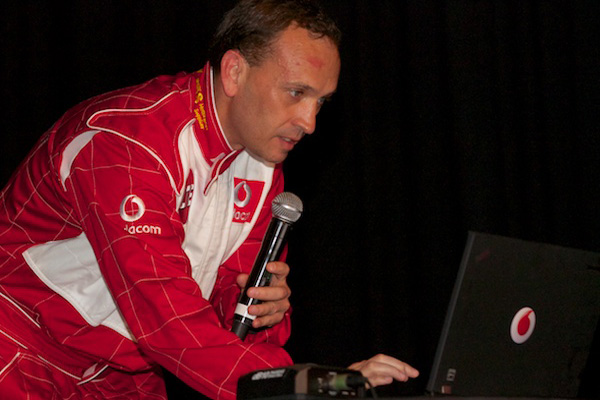TechInAfrica – With the unprecedented growth of mobile networks, the advancements of 4G and now 5G have taken over the networking scene of various regions in the world—Africa not being an exception. Despite this, some people still use the 2G network services (short for second-generation cellular technology; commercially launched on the GSM standard in Finland) for conventional tasks such as SMS text messaging and digitally-encrypted phone conversations. While some often regards 2G network as something overly mundane and out-of-date, a lesser few prefers a simpler term in communicating. Unfortunately, Vodacom—a South African mobile communications company—deemed it was a wise move to turn off its 2G service in South Africa.
Within the vast revolutions of wireless mobile networking, the legacy of 2G services would serve nothing but a stagnant obstacle hindering the process as a whole.

Andries Delport, CTO of the Vodacom spoke (along with numerous mobile providers in the country) that the company will turn off 2G for consumer handsets; in order to roll out more room for 4G and other modern services. Despite there’s still millions of 2G handsets connected to the platform, Vodacom will stay true to its purpose and focus towards switching off the referred network service.
Keep in mind that Vodacom does not at all intend to completely shut down its 2G—considering there are still many critical systems and telemetry devices that depend on the notion. Instead, the company aims to rework its 2G consumer voice network towards a newer, fresher 4G coverage and capacity.
Albeit such notions have been put into objective, the manifestation from the provider’s end is not as easy as it meets the eye. Many independent retailers—both large and small-time—still sell the bulk of these 2G handsets. Because it uses cheaper technology, 2G handsets are also relatively cheaper than those of 3G and 4G. This, in return, leads to sales of high volumes to customers who couldn’t afford to upgrade to more expensive devices that use 3G or 4G technology.
Both in urban and rural areas, a great number of 2G-compatible devices and gadgets still manages to play a significant role in the residents’ daily lives. Low-level communication devices pose as a substantial logistical challenge if this idea was to be implemented; replacing 2G with the newer models of 3G and 4G.
Contrary to popular belief, most major network providers in the world have also turned off 2G—even going as far as shutting down 3G—considering it’s fairly important to migrate off the once-renowned, legacy technologies. For countries of Africa, turning off 3G would be regarded as a harsh move since there’s still a heavy traffic amount of network present between the seams. Moreover, 4G coverage in rural areas are still modestly limited; people mainly still use 3G services to go through their daily lives.

So, for now, the best idea is to slowly turn off the seams of 2G network to allow more network coverage—as well as to slowly reduce the amount of spectrum required for its 2G network and repurpose it in smaller batches to aid its modern network rollout. In other words, less-populated areas will have the potential to receive a huge improvement in 4G coverage.
To ensure continuous development (especially in rapidly-developing countries of the African continent), both the government, the providers, and the locals must slowly let go of legacy technologies to welcome the impending change of the greater good. Contrarily, if locals are still hanging on onto old and outdated technologies, general technology development in the region will be difficult to manage and manifest.
Source: businesstech.co.za



